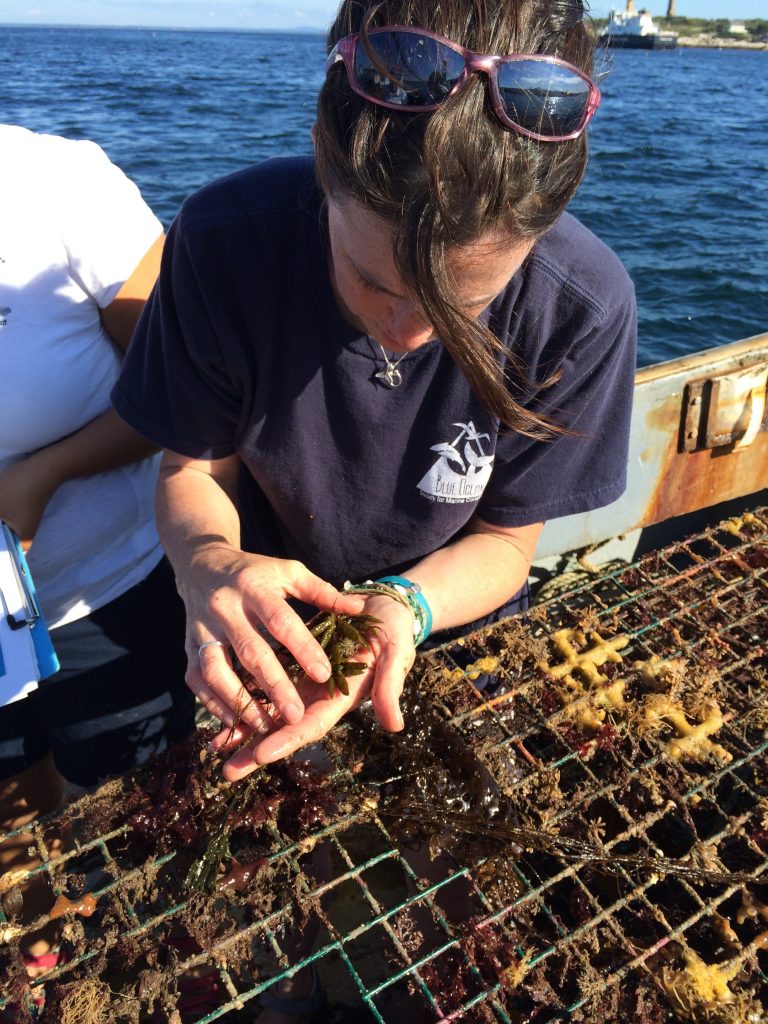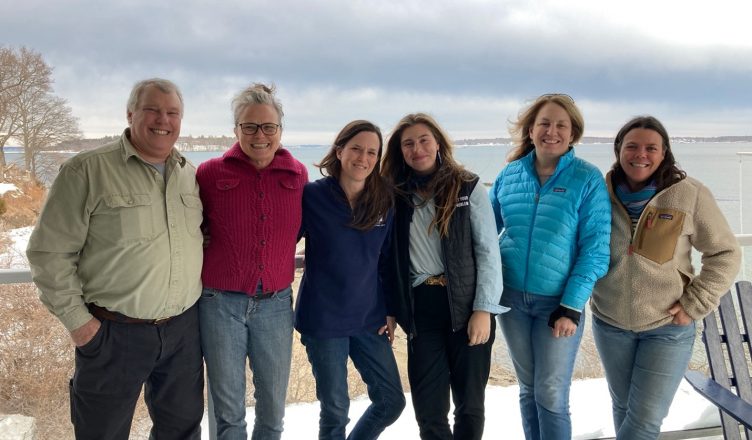We are thrilled to announce that we are participating in new $2.7 million project to fight marine debris in New England. We will receive over $100,000 over the next 3 years to work with many partners to clean up marine debris here in NH. We will clean up debris on islands at Isles of Shoals and in the Piscataqua River, along the coastline of Great Bay and underwater off the NH coast. Our local partners include NH Fish and Game, Conservation Law Foundation’s Great Bay Waterkeeper, and Shoals Marine Lab.
Below, you can read the official press release issued by Center for Coastal Studies, which is the lead organization on the grant. The National Oceanic and Atmospheric Administration’s (NOAA) Marine Debris Program awarded the grant via the Bipartisan Infrastructure Law (BIL) initiative. This grant supports addressing large-scale marine debris removal and disposal.
We look forward to updating you on this project as it gets underway!
For Immediate Release: September 11, 2023
Center for Coastal Studies Awarded BIL Funds for New Regional Ghost Gear Coalition
PROVINCETOWN, MASSACUSETTS – The Center for Coastal Studies (CCS) is pleased to announce that it has been awarded $2,718,532 from the National Oceanic and Atmospheric Administration’s (NOAA) Marine Debris Program to partner with Gulf of Maine Lobster Foundation, OceansWide, Blue Ocean Society for Marine Conservation, Rozalia Project for a Clean Ocean, and Net Your Problem in a regional coalition, the New England Regional Fishing Gear Response and Removal Team, addressing abandoned, lost, discarded or end-of-life fishing gear in New England.
Funding was awarded through a highly competitive process by the Bipartisan Infrastructure Law (BIL) initiative in support of projects addressing large-scale marine debris removal and disposal. The project spans the coastlines of Maine, New Hampshire, and Massachusetts and the CCS proposal included 32 letters of support from businesses and individuals in all three states as well as federal and state management agencies. The coalition seeks to build capacity and share information across the region, leveraging an additional $498,835 in non-federal matching support for a combined $3,217,367 over three years to remove, document, and recycle, repurpose, or properly dispose of fishing gear debris from the Gulf of Maine.
While the full slate of projects recommended for BIL funding was announced broadly in April, the official award from NOAA to CCS was finalized this week.
The coalition’s partners have a combined 70 years of experience working on the issue of fishing gear debris removal, documentation and disposal in New England. This award will facilitate a more streamlined regional response with shared assets, increased communication and dedicated project personnel.
“The Center for Coastal Studies is thrilled that our proposal to collaborate with experienced partners in Maine, New Hampshire and Massachusetts on issues concerning fishing gear debris was selected for funding,” said Laura Ludwig, coordinator of the Marine Debris and Plastics Program at the Center. “Though there is no silver bullet solution to the problem of marine debris, this ‘silver buckshot’ approach will make a huge difference in our shared marine environment, and I am personally excited to be expanding our CCS ghost gear removal program to other areas of Massachusetts. Thanks to this funding from NOAA’s Marine Debris Program, CCS and its partners will address regional priorities outlined in NOAA’s 2019 Gulf of Maine Marine Debris Action Plan by sharing best practices, unique assets and personnel, and by capitalizing on built-in efficiencies between partners.”
“Gulf of Maine Lobster Foundation (GOMLF) is honored to work with CCS and the New England regional partners to continue with our Gear Grab program along the coast of Maine,” said Erin Pelletier, Executive Director of GOMLF, the primary partner in Maine. “This funding will allow us to expand our outreach to fishermen who have shown interest in working with us on removal and proper disposal options of fishing gear in their area. The collaboration will provide us the opportunity to share resources between organizations and increase our capacity to maintain a healthy marine environment.”
Jen Kennedy of Blue Ocean Society for Marine Conservation said, “We are thrilled to collaborate with this experienced team to remove fishing gear debris in this region, and develop a lasting infrastructure for effective disposal. We look forward to working with local partners to clean up accumulations of unused gear underwater, on the Isles of Shoals and in the Piscataqua River and Great Bay, for the benefit of wildlife and the people that use our waterways.”
“OceansWide is excited to join this truly amazing collaboration of talented and hardworking partners with the New England Regional Fishing Gear Response and Removal Team,” said Campbell “Buzz” Scott, founder and director of the Maine-based organization. “Over the years we have discussed the possibility of building a partnership, knowing full well that no one person or organization can develop and sustain the work that needs to be done to clean all types of marine debris from the ocean, seafloor, and shorelines. Truth be told, it is the responsibility of every human on the planet to support a healthy ocean. The time for placing blame and passing the buck is in the past, we need to work together. A healthy ocean means a healthy planet. It is common sense.”
Rozalia Project for a Clean Ocean is the coalition’s sole sailing partner. Executive Director Ashley Sullivan said, “As a non-profit who is working in the Gulf of Maine on the problem of marine debris, we operate from our 60’ Oceanographic Sailing Research Vessel, American Promise, and look forward to providing outreach and education to coastal communities as we work on ghost gear recovery on remote islands in Maine.”
“Net Your Problem is thrilled to be a part of this regional collaboration to address the issue of fishing gear debris from so many angles; from prevention to education, removal and disposal. And it just makes sense for all of the partnering organizations to share resources,” said Nicole Baker, founder and director of the Seattle-based business. “We can’t wait to see what kind of items will arrive at our New Bedford warehouse. NYP’s responsibility as part of this dream team is to find non-landfill disposal options for end-of-life gear as well as beach debris. We invite you to visit the warehouse and welcome any ideas about repurposing these items.”
“Working together and sharing information are extremely important for addressing the marine debris problem,” said Demi Fox, Northeast Regional Coordinator for the NOAA Marine Debris Program. “We are proud to support these incredibly dedicated and skilled partners in a new collaborative effort to prevent and reduce marine debris in communities across the Gulf of Maine.”
The Center for Coastal Studies (CCS) in Provincetown MA is a non-profit organization dedicated to understanding, preserving and protecting marine ecosystems and the coastal environment through applied research, education and public policy initiatives. The CCS Marine Debris & Plastics Program uses a collaborative approach to identify and address priority plastic debris issues in the Gulf of Maine and beyond, with a focus on abandoned, lost or otherwise discarded fishing gear.
Image above: project partners gathered for a meeting in spring 2023. Shown from L-R: Buzz Scott, OceansWide; Laura Ludwig, CCS; Jen Kennedy, Blue Ocean Society; Caitlin Townsend, Net Your Problem; Erin Pelletier, GOMLF; Ashley Sullivan, Rozalia Project.
Below: BOS Executive Director Jen Kennedy at a lobster gear cleanup in 2014.







